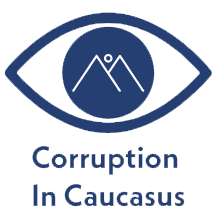After the Velvet Revolution, Armenia set out to dismantle deep-rooted corruption. While reforms have shown promise, serious challenges continue to test the country’s commitment to transparency and justice.
Armenia has been undergoing a significant transformation in its fight against corruption since the 2018 Velvet Revolution. The peaceful overthrow of the former ruling elite ignited hopes for a new era of transparency, accountability, and democratic reform. Yet, while notable progress has been achieved, Armenia continues to grapple with deep-rooted structural and cultural obstacles that threaten to undermine these efforts.
Post-Revolution Reforms and Achievements
Prime Minister Nikol Pashinyan’s government declared a policy of “zero tolerance” for corruption as a cornerstone of its agenda. This strong stance was not just rhetoric: Armenia’s ranking in Transparency International’s Corruption Perceptions Index (CPI) has steadily improved in recent years. In 2023, Armenia scored 47 out of 100, placing it ahead of many of its regional neighbors and signaling international recognition of its efforts.
Among the most significant steps forward has been reforming the judiciary. In recent years, Armenia introduced salary increases for judges and prosecutors to reduce incentives for bribery and outside influence. As Pashinyan emphasized during a recent government meeting, raising salaries is a critical measure to ensure justice is accessible and fair, and to strengthen public trust in state institutions.
Moreover, the government has pursued high-profile corruption cases against former officials, including ex-President Serzh Sargsyan and several senior figures from the previous regime. These prosecutions have been viewed as a message that no one is above the law and that the era of impunity is ending.
Ongoing Vulnerabilities
Despite these encouraging signs, Armenia’s anti-corruption struggle is far from over. Corruption remains entrenched in various sectors, including customs, mining, and public procurement. Large infrastructure projects, for example, continue to be vulnerable to cost inflation and mismanagement, raising questions about oversight and transparency.
Judicial independence, though strengthened in theory, still faces practical challenges. Many citizens express skepticism about whether courts are truly free from political pressure, and some observers warn that selective justice could undermine the credibility of reforms. Ensuring a fully independent and professional judiciary remains an essential pillar for lasting progress.
Furthermore, local governance structures often struggle with nepotism and patronage networks that limit fair competition and restrict opportunities for qualified candidates. These dynamics can stifle economic development and deter foreign investment, as businesses seek stable and predictable environments.
The Role of Civil Society and Media
Civil society organizations and independent media have played an important role in supporting Armenia’s anti-corruption agenda. Investigative journalists have exposed misuse of public funds, conflicts of interest, and irregularities in state contracts. NGOs continue to push for greater transparency and to hold officials accountable.
However, the environment for media and civil society remains fragile. While Armenia generally fares better than many neighboring states in terms of press freedom, journalists sometimes face lawsuits, harassment, or other forms of intimidation. Protecting these watchdogs is vital to sustaining progress and encouraging a culture of openness and accountability.
Looking Ahead: Reform Priorities
Experts suggest several key priorities for Armenia to build on its anti-corruption gains:
- Deepen Judicial Reform: Ensure judicial appointments and disciplinary processes are transparent and merit-based, reinforcing independence.
- Strengthen Local Governance: Reduce nepotism by enforcing clear rules on hiring and promotion in municipal structures.
- Enhance Transparency in Public Procurement: Introduce stricter monitoring mechanisms and open contracting to minimize misuse of state funds.
- Empower Civil Society: Protect the independence of media and NGOs, and provide them with stronger legal safeguards to investigate and report misconduct without fear.
- Promote a Culture of Integrity: Launch public education campaigns to raise awareness about the costs of corruption and encourage civic participation.
Conclusion
Armenia’s journey toward eradicating corruption is a work in progress. The government’s commitment since 2018 has generated meaningful changes and inspired greater public confidence. Yet, the fight is far from over. Building strong, transparent, and independent institutions requires sustained political will, active civil society engagement, and a long-term vision that prioritizes the rule of law over short-term political gains.
Only by addressing these structural and cultural challenges can Armenia truly consolidate its democratic transition and create a fairer, more prosperous society for all its citizens.

